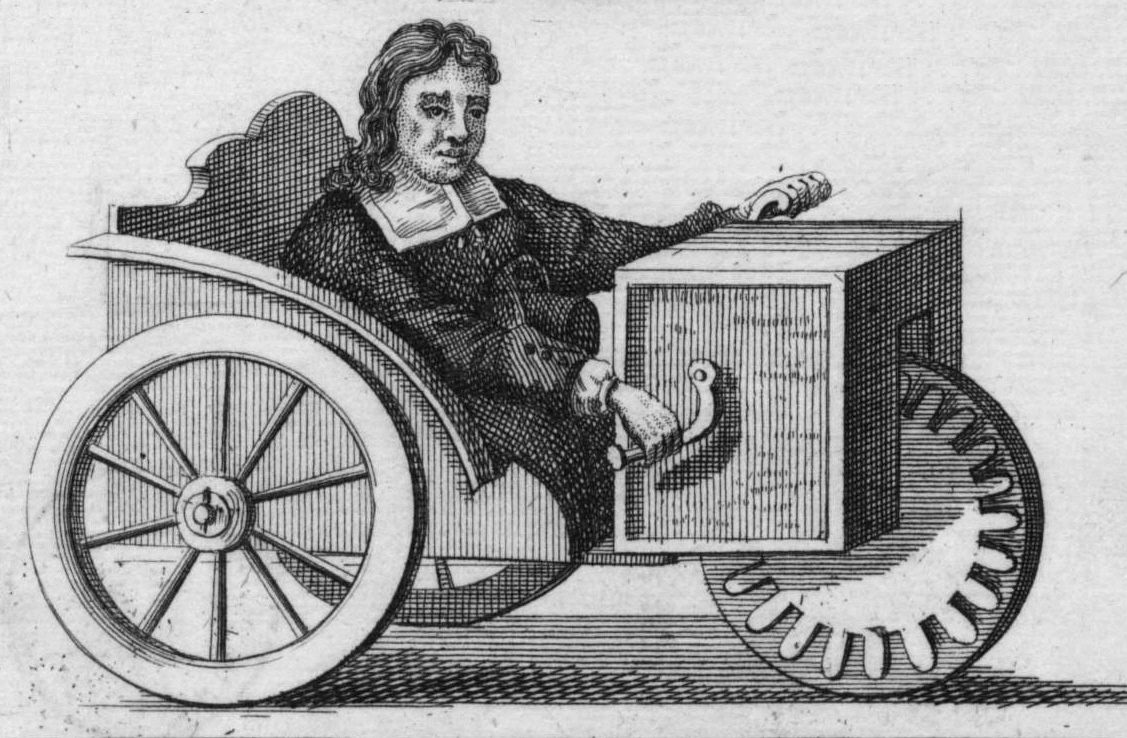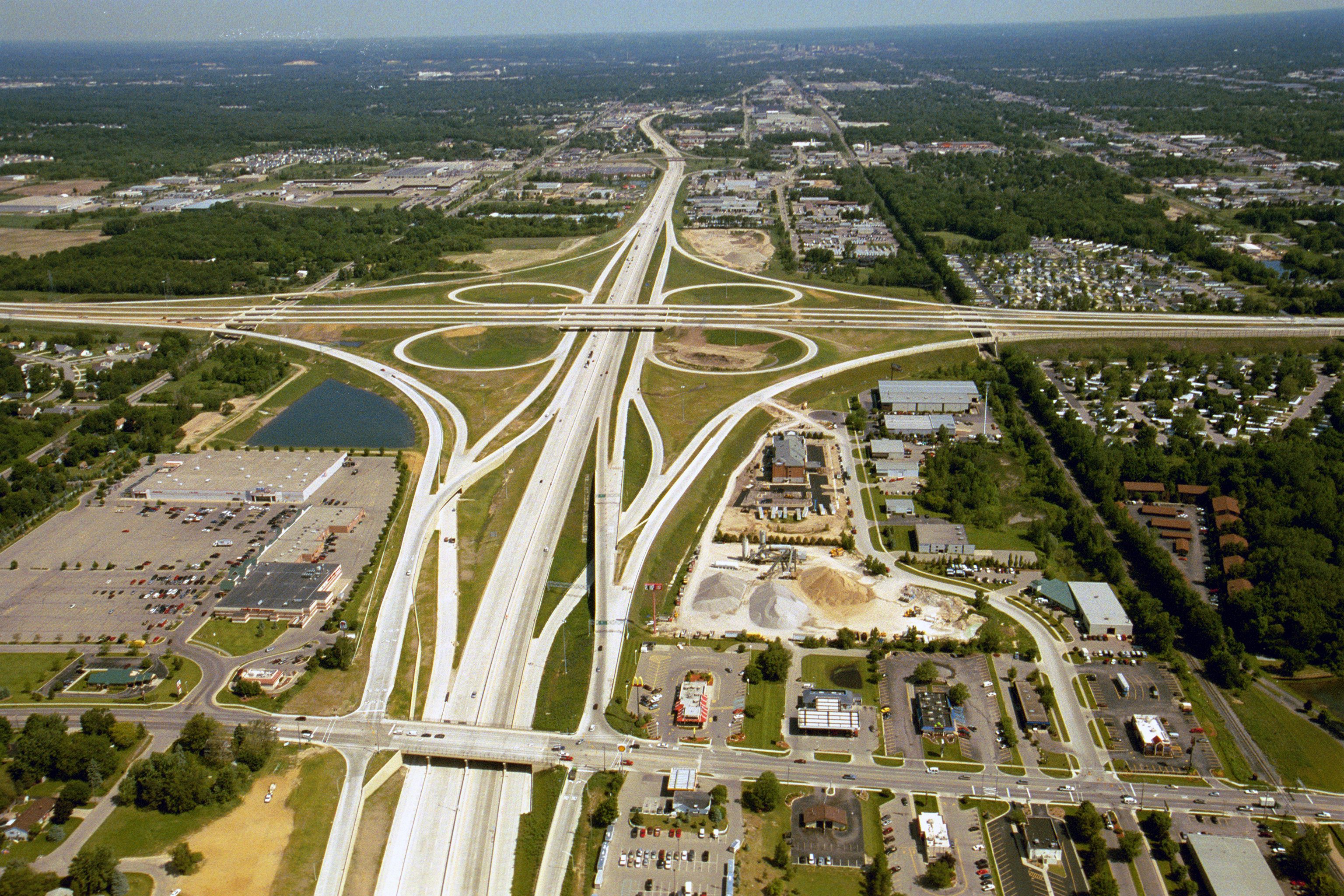|
Invalid Carriage
Invalid carriages were usually single seater road vehicles, buggies, or self-propelled vehicles for disabled people. They pre-dated modern electric mobility scooters and, from the 1920s, were generally powered by small gasoline/petrol engines, although some were battery powered. They were usually designed without foot-operated controls. The term "invalid carriage" persists in the United Kingdom in the regulation of mobility devices for disabled people, but excludes most of the more powerful, motorised types. History Origins Stephan Farffler was a Nuremberg watchmaker of the seventeenth century whose invention of a manumotive carriage in 1655 is widely considered to have been the first self-propelled wheelchair. He is believed to have been either a paraplegic or an amputee. As such, the chair was consistent with the later designs for self-propelled invalid carriages. The three-wheeled device is also believed to have been a precursor to the modern-day tricycle and bicycle. In Engla ... [...More Info...] [...Related Items...] OR: [Wikipedia] [Google] [Baidu] |
AC Cars
AC Cars, originally incorporated as Auto Carriers Ltd., is a British specialist automobile manufacturer and one of the oldest independent car makers founded in Britain. As a result of bad financial conditions over the years, the company was renamed or liquidated many times until its present form. In 2022, the new corporate structure began the production of new AC Cobra models, with a slightly modified structure to adapt it to modern safety and technology requirements and obtain the European road homologation certificate History The Weller brothers prototype The first car from what eventually became AC was presented at the Crystal Palace motor show in 1903; it was a 20 HP touring car and was displayed under the Weller name. The Weller brothers of West Norwood, London, planned to produce an advanced car. However, their financial backer and business manager John Portwine, a butcher, thought the car would be too expensive to produce and encouraged Weller to design an ... [...More Info...] [...Related Items...] OR: [Wikipedia] [Google] [Baidu] |
SMZ Cycle-car
The SMZ cyclecar was a Soviet microcar, manufactured in Serpukhov, Russia, by ''Serpukhov Motor Works'' (russian: Серпуховский Мотозавод, ''Serpukhovskiy Motozavod''), later known as the now-defunct SeAZ. The most common models were the S-3A (S-Three-A) and S-3D (S-Three-D). They were specially designed for disabled drivers and were distributed in the USSR free or at a large discount through the Soviet Union's social welfare system, and were not officially sold to non-disabled people. The S-3A-M was produced between 1958 and 1970. It was powered by a 346 cc single-cylinder two-stroke engine, giving and a top speed of . The S-3D, produced between 1970 and 1997, was a twin-seat, four-wheeled cyclecar, in length, but rather heavy (≈500 kg) due to all-steel body. It was powered by IZH-P3 air-cooled two-stroke engine (18 DIN hp). In the USSR the model was commonly known as a "motor-wheelchair" (russian: инвалидка, ''invalidka'') because they wer ... [...More Info...] [...Related Items...] OR: [Wikipedia] [Google] [Baidu] |
East Germany
East Germany, officially the German Democratic Republic (GDR; german: Deutsche Demokratische Republik, , DDR, ), was a country that existed from its creation on 7 October 1949 until its dissolution on 3 October 1990. In these years the state was a part of the Eastern Bloc in the Cold War. Commonly described as a communist state, it described itself as a socialist "workers' and peasants' state".Patrick Major, Jonathan Osmond, ''The Workers' and Peasants' State: Communism and Society in East Germany Under Ulbricht 1945–71'', Manchester University Press, 2002, Its territory was administered and occupied by Soviet forces following the end of World War II—the Soviet occupation zone of the Potsdam Agreement, bounded on the east by the Oder–Neisse line. The Soviet zone surrounded West Berlin but did not include it and West Berlin remained outside the jurisdiction of the GDR. Most scholars and academics describe the GDR as a totalitarian dictatorship. The GDR was establish ... [...More Info...] [...Related Items...] OR: [Wikipedia] [Google] [Baidu] |
Simson (company)
Simson was a German company which produced firearms, automobiles, bicycles and motorcycles, and mopeds. Under the Third Reich, the factory was taken from the Jewish Simson family, and was renamed several times under Nazi and later Communist control. The Simson name was reintroduced as a brand name for mopeds produced at the factory in the former German Democratic Republic (GDR). Simson mopeds were then produced in Suhl (Germany) until 2002. History 1854–1933 In 1854 the brothers Löb and Moses Simson bought one third of a steelhammer works in Suhl (Germany). The production of carbon steel began and the firm Simson & Co. was founded in 1856. The factory produced guns and gun barrels in the years following. In 1871 the first steam engine started its service and the enterprise established production of bicycles in 1896, which was followed by the start of automobile production in 1907. The Simson Supra racing car is famous. In World War I, Simson produced Mauser Gewehr 98 rifles ... [...More Info...] [...Related Items...] OR: [Wikipedia] [Google] [Baidu] |
Victoria (motorcycle)
Victoria was a bicycle manufacturer in Nürnberg, Germany that made motorcycles from about 1901 until 1966. It should not be confused with a lesser-known, unrelated Victoria Motorcycle Company in Glasgow, Scotland that made motorcycles between 1902 and 1928. In its early decades Victoria in Nürnberg fitted proprietary engines purchased from various manufacturers including Fafnir, FN, Minerva and Zédel. 1920–1932 In 1920 Victoria launched the model KR 1, which has a 494 cc BMW twin-cylinder side-valve flat twin (boxer engine) mounted longitudinally in the motorcycle frame. The engine produced and transmission was via a two-speed gearbox. When BMW started making its own motorcycles, Victoria turned to making its own engines. In 1923 Victoria launched its KR 2, an overhead valve (OHV) flat twin producing . In 1924 Victoria followed this with the KR 3, which produces and has a 3-speed gearbox. In 1925 Victoria built Germany's first forced induction engine, and in 1926 ... [...More Info...] [...Related Items...] OR: [Wikipedia] [Google] [Baidu] |
Fritz Fend
Fritz Fend (April 14, 1920 in Rosenheim – November 22, 2000) was an aeronautical engineer. He was noted for designing Messerschmitt's Kabinenroller (cabinscooter) KR175 and KR200 microcars, for co-founding FMR, the company that took over production of the Kabinenrollers in 1956, and for designing the FMR Tg500, a sports microcar based on the Kabinenroller. Fend continued his career as an inventor and designer after the KR200 ended production. Fend was working on another lightweight vehicle project shortly before his death. Rosenheim workshop After the Second World War, Fend, who had been a technical officer with the Luftwaffe, opened a workshop in Rosenheim, Germany. In 1948, he devised an invalid carriage in the form of a tricycle. The front wheel of the tricycle was powered by pushing the handlebars back and forth. Originally designed with bicycle wheels, it was redesigned with scooter wheels in order to make the carriage lower. Fend later made a version that was powered ... [...More Info...] [...Related Items...] OR: [Wikipedia] [Google] [Baidu] |
Since 1988 (born 1992), South Korean rapper
{{disambiguation, geo ...
Since may refer to: Places *Sincé, Sucre Department, Colombia * Sińce, West Pomeranian Voivodeship, Poland Other * ''Since'' (film), a 1966 film by Andy Warhol * ''Since'' (album), a 1998 album by Richard Buckner *Since (rapper) Shin Su-jin (; born December 28, 1992), known professionally as Since (, stylized in all caps), is a South Korean rapper. She first garnered attention when she appeared on ''Show Me the Money 10'' in 2021. She released her debut studio album '' ... [...More Info...] [...Related Items...] OR: [Wikipedia] [Google] [Baidu] |
Motorway
A controlled-access highway is a type of highway that has been designed for high-speed vehicular traffic, with all traffic flow—ingress and egress—regulated. Common English terms are freeway, motorway and expressway. Other similar terms include '' throughway'' and '' parkway''. Some of these may be limited-access highways, although this term can also refer to a class of highways with somewhat less isolation from other traffic. In countries following the Vienna convention, the motorway qualification implies that walking and parking are forbidden. A fully controlled-access highway provides an unhindered flow of traffic, with no traffic signals, intersections or property access. They are free of any at-grade crossings with other roads, railways, or pedestrian paths, which are instead carried by overpasses and underpasses. Entrances and exits to the highway are provided at interchanges by slip roads (ramps), which allow for speed changes between the highway and arteri ... [...More Info...] [...Related Items...] OR: [Wikipedia] [Google] [Baidu] |
National Health Service
The National Health Service (NHS) is the umbrella term for the publicly funded healthcare systems of the United Kingdom (UK). Since 1948, they have been funded out of general taxation. There are three systems which are referred to using the "NHS" name ( NHS England, NHS Scotland and NHS Wales). Health and Social Care in Northern Ireland was created separately and is often locally referred to as "the NHS". The four systems were established in 1948 as part of major social reforms following the Second World War. The founding principles were that services should be comprehensive, universal and free at the point of delivery—a health service based on clinical need, not ability to pay. Each service provides a comprehensive range of health services, free at the point of use for people ordinarily resident in the United Kingdom apart from dental treatment and optical care. In England, NHS patients have to pay prescription charges; some, such as those aged over 60 and certain state ben ... [...More Info...] [...Related Items...] OR: [Wikipedia] [Google] [Baidu] |
Hampshire
Hampshire (, ; abbreviated to Hants) is a ceremonial county, ceremonial and non-metropolitan county, non-metropolitan counties of England, county in western South East England on the coast of the English Channel. Home to two major English cities on its south coast, Southampton and Portsmouth, Hampshire is the 9th-most populous county in England. The county town of Hampshire is Winchester, located in the north of the county. The county is bordered by Dorset to the south-west, Wiltshire to the north-west, Berkshire to the north, Surrey to the north-east, and West Sussex to the south east. The county is geographically diverse, with upland rising to and mostly south-flowing rivers. There are areas of downland and marsh, and two national parks: the New Forest National Park, New Forest and part of the South Downs National Park, South Downs, which together cover 45 per cent of Hampshire. Settled about 14,000 years ago, Hampshire's recorded history dates to Roman Britain, when its chi ... [...More Info...] [...Related Items...] OR: [Wikipedia] [Google] [Baidu] |
National Motor Museum, Beaulieu
The National Motor Museum (originally the Montagu Motor Museum) is a museum in the village of Beaulieu, set in the heart of the New Forest, in the English county of Hampshire. History The museum was founded in 1952 by Edward Douglas-Scott-Montagu, 3rd Baron Montagu of Beaulieu, as a tribute to his father, John, 2nd Baron Montagu, who was one of the pioneers of motoring in the United Kingdom, being the first person to drive a motor car into the yard of the Houses of Parliament, and having introduced King Edward VII (then the Prince of Wales) to motoring during the 1890s. At first, the museum consisted of just five cars and a small collection of automobilia displayed in the front hall of Lord Montagu's ancestral home, Palace House; but such was the popularity of this small display that the collection soon outgrew its home, and was transferred to wooden sheds in the grounds of the house. The reputation and popularity of the Beaulieu collection continued to grow: during 1959, ... [...More Info...] [...Related Items...] OR: [Wikipedia] [Google] [Baidu] |





